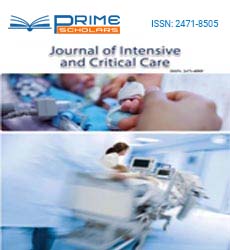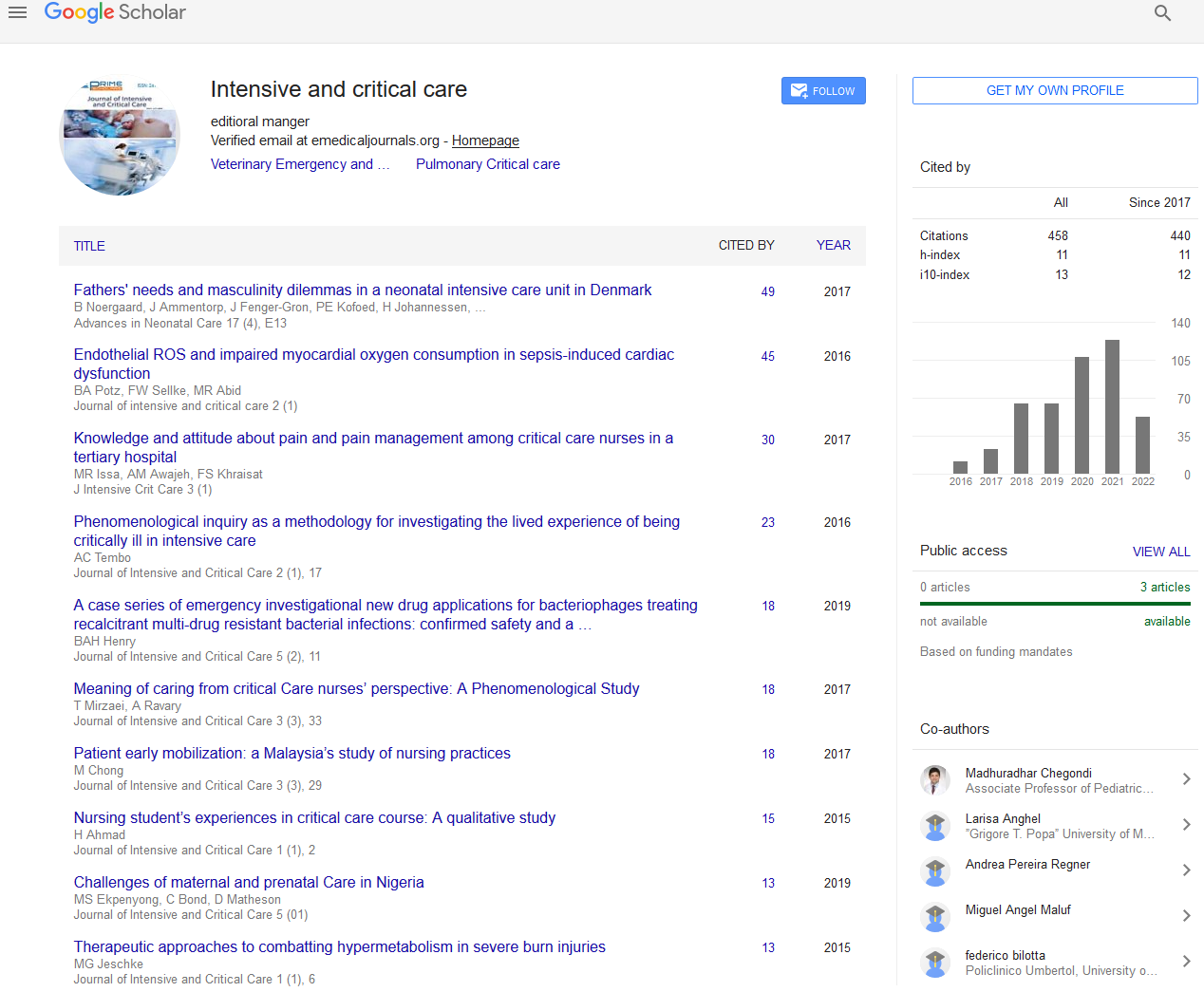Opinion - (2023) Volume 9, Issue 3
A Subjective Examination of Family Surrogate Choice Making in Incessant Basic Sickness
Lindsey L Cohen*
Department of Psychology, Georgia State University, USA
*Correspondence:
Lindsey L Cohen,
Department of Psychology, Georgia State University,
USA,
Email:
Received: 31-May-2023, Manuscript No. IPJICC-23-16791;
Editor assigned: 02-Jun-2023, Pre QC No. IPJICC-23-16791 (PQ);
Reviewed: 16-Jun-2023, QC No. IPJICC-23-16791;
Revised: 21-Jun-2023, Manuscript No. IPJICC-23-16791 (R);
Published:
28-Jun-2023, DOI: 10.35248/2471-8505-9.3.30
Introduction
In today’s fast-paced and interconnected world, criticism seems
to be a prevalent part of our lives. Whether it’s in the workplace,
social circles, or even online platforms, we often encounter
critical remarks and feedback. While constructive criticism
can be valuable for personal growth and improvement, chronic
criticality, the constant habit of being overly critical, has its
drawbacks. This article explores the negative effects and consequences
of chronic criticality, both on individuals and society
as a whole. One of the primary drawbacks of chronic criticality
is its detrimental impact on relationships. Constantly finding
faults and flaws in others can lead to strained interpersonal
connections. Friends, family members, and colleagues may feel
disheartened, demotivated, and defensive in the face of constant
criticism. Over time, this can erode trust and create a hostile
environment where individuals feel judged and insecure.
Individuals who engage in chronic criticality are often unaware
of the toll it takes on their own self-esteem. While they may believe
they are offering constructive feedback, the constant focus
on shortcomings and imperfections can lead to a negative
self-image. The fear of being criticized can prevent individuals
from taking risks, pursuing their passions, and embracing personal
growth opportunities. The cumulative effect of chronic
criticality is a persistent sense of inadequacy and self-doubt. In
creative fields, such as art, writing, and entrepreneurship, the
importance of a supportive and nurturing environment cannot
be overstated. Chronic criticality stifles creativity by instilling a
fear of failure and stifling innovative thinking.
Description
When individuals are constantly on the defensive, they are
less likely to take risks or explore new ideas. This can have a
detrimental impact on personal growth and hinder the progress
of entire industries. For both the chronic criticizer and the
recipient of criticism, chronic criticality can lead to emotional exhaustion. Engaging in constant critique requires significant
mental and emotional energy, leading to increased stress levels.
On the receiving end, being constantly scrutinized can result
in feelings of anxiety, depression, and burnout. The cycle
of chronic criticality creates a toxic dynamic that drains individuals
emotionally and mentally. Chronic criticality can permeate
workplaces, leading to a toxic work culture. When criticism
becomes the norm, employees are less likely to feel motivated
or valued. Instead, they may experience a sense of constant
pressure, leading to decreased job satisfaction and productivity.
Collaboration and teamwork suffer when individuals are
afraid to share ideas or make mistakes. Ultimately, a workplace
dominated by chronic criticality hampers innovation and stifles
employee engagement. While constructive criticism can be a
catalyst for personal growth, chronic criticality often overlooks
the importance of positive reinforcement and encouragement.
By fixating solely on weaknesses, individuals miss opportunities
to acknowledge strengths and build on them. Chronic
criticality tends to focus on the negative aspects of situations,
ideas, and individuals, which results in a limited perspective. By
fixating on flaws, opportunities for growth and improvement
can be missed. Embracing a more balanced viewpoint that appreciates
both strengths and weaknesses fosters a healthier
and more comprehensive understanding of the world.
Conclusion
While criticism can be valuable when used constructively,
chronic criticality comes with significant drawbacks. Strained
relationships, low self-esteem, reduced creativity, emotional
exhaustion, negative workplace culture, missed opportunities
for growth, and a limited perspective are among the consequences
of chronic criticality. It is crucial to cultivate a balanced
approach to feedback, one that acknowledges strengths while
providing constructive criticism. By doing so, we can foster an
environment that encourages personal growth, innovation,
and positive relationships.
Citation: Cohen LL (2023) A Subjective Examination of Family Surrogate Choice Making in Incessant Basic Sickness. J Intensive Crit Care. 9:30.
Copyright: © 2023 Cohen LL. This is an open-access article distributed under the terms of the Creative Commons Attribution License, which permits unrestricted use, distribution, and reproduction in any medium, provided the original author and source are credited.

